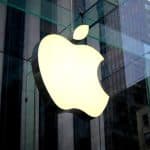Apple has criticized the European Union for what it calls confusing and contradictory privacy demands. The company claims that two of the EU’s key regulations — the Digital Markets Act (DMA) and the Digital Services Act (DSA) — send opposing messages about user protection.
The DMA pushes Apple to open its ecosystem, allowing third-party app stores and alternative payment systems. However, Apple says this weakens privacy safeguards and increases the risk of scams. Meanwhile, the DSA accuses Apple of not doing enough to stop illegal content and protect users. According to Apple, these demands simply cannot coexist.

Apple Defends Its Privacy Measures
In a recent letter to EU regulators, Apple stated that it had received several Requests for Information (RFIs). These RFIs claimed that Apple failed to take reasonable steps to prevent scams and protect minors online.
Apple rejected the claims, insisting that it has spent years building one of the most secure ecosystems in the world. “We find it difficult to align the DSA’s requests with the Commission’s enforcement of the DMA,” the company wrote.
Furthermore, Apple argued that the new rules force it to allow outside systems that expose users to greater security threats. The company said that third-party app stores and payment links, while allowed under the DMA, could lead to more fraud and identity theft.
A Growing Clash Between Apple and Regulators
This latest exchange comes amid the EU’s review of the DMA’s implementation. Apple suggested that the new DSA complaints might be an attempt to shift attention away from the negative impacts of the DMA.
The 5,500-word letter, signed by Kyle Andeer, Apple’s Vice President of Legal, marks a tougher stance from the tech giant. Once known for cooperating with European regulators, Apple now appears ready to fight back.
The European Commission has not yet responded to Apple’s latest criticism, but tensions between the two sides continue to rise.











